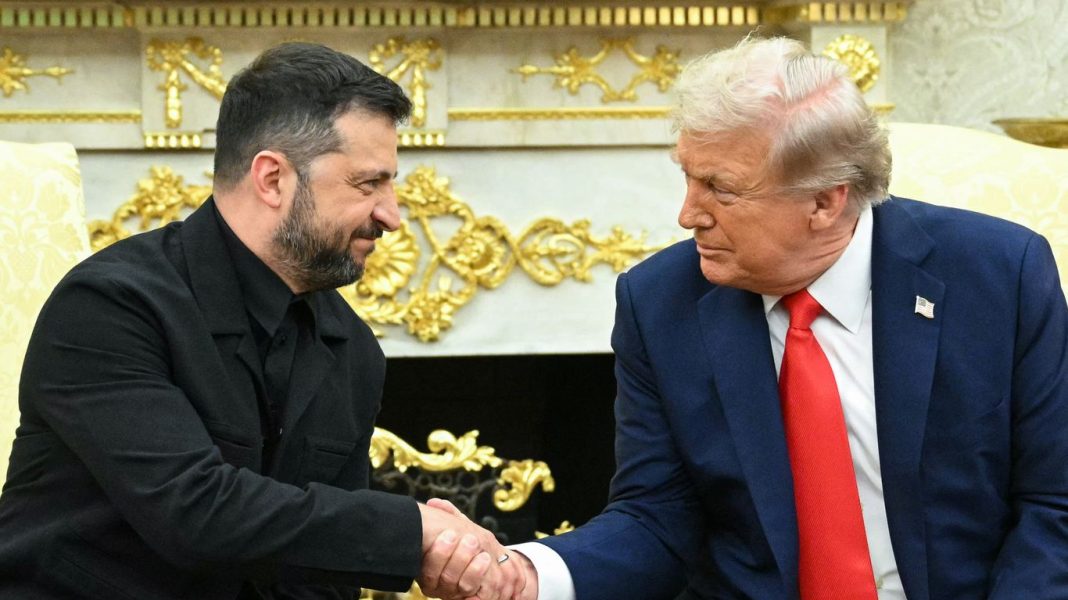The geopolitical chessboard just saw a fascinating new move, with Ukrainian President Volodymyr Zelensky expressing his readiness to meet Donald Trump around the Thanksgiving period to discuss a potential Ukraine-Russia deal. This isn’t just a casual invitation; it’s a strategic overture that opens a new chapter in the ongoing international dialogue surrounding the conflict, laden with both immense possibilities and formidable challenges.
The Context Behind Zelensky’s Invitation
Zelensky’s proposition comes at a crucial juncture. Trump has long maintained a public stance that he could resolve the Ukraine conflict swiftly, a claim that has garnered both attention and skepticism globally. For Kyiv, acknowledging this influence, particularly with a potential return to the White House for Trump, appears to be a proactive measure. It’s a pragmatic recognition that regardless of one’s political leanings, Trump’s voice carries significant weight on the international stage, and a direct line of communication could be vital.
The timing is also telling. As the conflict grinds on with no clear end in sight, and with international support for Ukraine facing various pressures, exploring every diplomatic avenue becomes paramount. Zelensky’s offer can be interpreted as an attempt to directly engage with a figure who has publicly voiced a clear, albeit often underspecified, intention to bring the conflict to a close. It’s an invitation to put those claims to the test, and perhaps, to inform Trump’s understanding of the realities on the ground should he take office again.
Navigating a Geopolitical Minefield: Challenges and Opportunities
The prospect of such a meeting is undoubtedly complex. On one hand, direct dialogue with a potentially influential leader could be an invaluable opportunity for Ukraine to articulate its perspective, explain its red lines, and underscore the principles of sovereignty and territorial integrity that underpin its defense. It’s a chance to potentially shape future U.S. policy directly from Kyiv’s vantage point, rather than leaving it solely to external interpretation or political rhetoric.
However, the path is fraught with potential pitfalls. Trump’s “America First” approach and his previous critical remarks about NATO and European allies raise questions about the nature of any “deal” he might broker. Would it align with Ukraine’s long-term interests and security, or would it prioritize a quick resolution that could be seen as sacrificing Ukrainian sovereignty or security guarantees? There’s also the intricate dance with current international alliances; any independent U.S.-brokered deal would need careful consideration of its impact on NATO cohesion and European solidarity.
Furthermore, the feasibility of a true “Ukraine-Russia deal” involving Trump is also contingent on Moscow’s willingness to engage on terms acceptable to all parties. The complexities of territorial disputes, security assurances, and international sanctions are immense. As Dr. Anya Sharma, a geopolitical analyst, remarked, “This isn’t just about a meeting; it’s a strategic gambit by Kyiv to anchor future support and perhaps influence the narrative before the electoral dust settles. It’s a high-reward, high-risk play that reflects the desperate search for an off-ramp in a brutal conflict.”
A High-Stakes Diplomatic Gambit
Ultimately, Zelensky’s invitation is a testament to the high stakes involved in the ongoing conflict and the desperate search for pathways to peace or a sustainable resolution. It’s a bold diplomatic gambit, one that acknowledges the unique political landscape of the moment. While the idea of a Thanksgiving meeting between these two leaders discussing such a monumental deal might seem unusual, it underscores the unpredictable nature of contemporary geopolitics.
Whether this meeting materializes and what, if anything, might emerge from it remains speculative. Yet, the very offer injects a new dynamic into the conversation, forcing all stakeholders to consider the potential implications of a direct, high-level engagement between Kyiv and a former — and possibly future — U.S. President with a distinct approach to international relations. The world will be watching to see if this audacious move paves the way for new possibilities or merely adds another layer of complexity to an already intricate global challenge.




